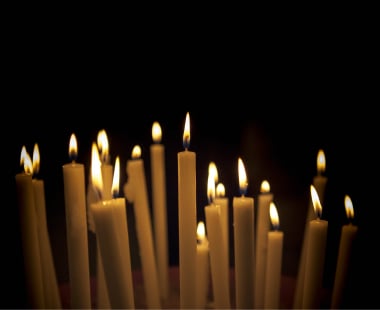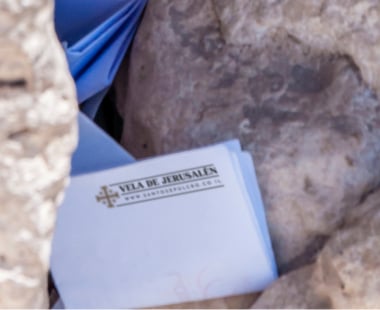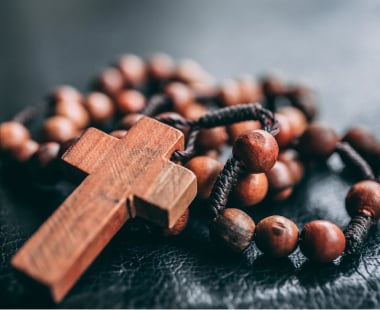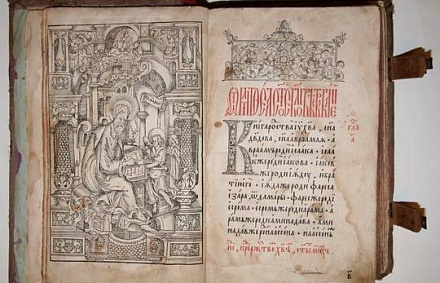Theophylact Bulgarian. Interpretation of the Gospel of Matthew
Matthew 14: 1. At that time, Herod the quarter-ruler heard a rumor about Jesus
Matthew 14: 2. And he said to those who served with him: This is John the Baptist; he rose from the dead, and therefore miracles are done to him.
This Herod was the son of Herod, who beat up babies in Bethlehem. Hence, understand the pride of a despotic life. That's how long it took Herod to hear about the work of Jesus! Powerful persons will not soon find out about this, since they do not pay attention to those who shine with virtue. He seemed to be afraid of the Baptist; therefore he decided to speak not with anyone else, but with the youths, that is, with the slaves. Since John did not perform miracles during his lifetime, Herod thought that after his resurrection he received from God this gift - the gift of working miracles.
Matthew 14: 3. For Herod took John, tied him up and put him in prison for Herodias, the wife of Philip his brother,
Matthew 14: 4. because John said to him: you must not have it.
Matthew 14: 5. And he wanted to kill him, but he was afraid of the people, because he was considered a prophet.
In previous accounts of the life of John, Matthew did not mention this, because his purpose was to describe only those related to Christ. He would not have mentioned it now, if it had not been related to Christ. John denounced Herod as having illegal his brother's wife. The law commanded a brother to take his brother's wife if he died childless. Here Philip did not die childless, for he had a daughter who danced. Some say that Herod took away both his wife and the tetrarchy while Philip was still alive. But anyway, what he did was illegal. Herod, not fearing God, was afraid of the people, and therefore refrained from murder, but the devil presented him with an opportunity.
Matthew 14: 6. During the celebration of Herod's birthday, the daughter of Herodias danced before the assembly and pleased Herod,
Matthew 14: 7. therefore he promised with an oath to give her whatever she asked.
Matthew 14: 8. But she, at the instigation of her mother, said: Give me here on a platter the head of John the Baptist.
See what shamelessness! The princess is dancing! And the better she dances, the worse, for the princess is ashamed to do anything obscene with cunning. See also Herod's other follies. He swore to give the princess whatever she asked if he danced well. But if you asked for your head, would you give it? 'Give me John's head here on a platter.' Why did you add 'here'? She feared that Herod, having changed his mind, would not repent later. Therefore, he hurries Herod, saying: 'give me here.'
Matthew 14: 9. And the king was grieved, but for the sake of the oath and for those who reclined with him, he commanded that it be given to her,
Matthew 14:10. and sent to cut John's head is in the dungeon.
Matthew 14:11. And his head was brought on a platter and given to the girl, and she brought it to her mother.
Matthew 14:12. But his disciples came and took his body and buried it;
He was grieved because of virtue, for the enemy is also surprised by virtue. However, by virtue of his oath, he gives an inhuman gift. Let us learn from this that it is better to break an oath than because of an oath to do something wicked. The body of the Baptist was buried in Sebastia of Caesarea, and its honest head was first laid in Emesa.
and went and told Jesus.
What was announced to Jesus? Not that John died, for the story about John spread everywhere, but that Herod considers him to be John.
Matthew 14:13. And when Jesus heard, he departed from there by boat to a deserted place alone;
Jesus leaves because of the murder of Herod, teaching us not to be exposed to danger; He also leaves so that they do not think that He has incarnated in a phantom. For if Herod had possessed Him, then he would have made an attempt to destroy Him, and if Jesus in this case had stolen Himself from the midst of dangers, because the time of death had not come, then they would have considered that He was a ghost. So that's why He's leaving. “Goes to a desolate place” to perform a miracle over the loaves there.




